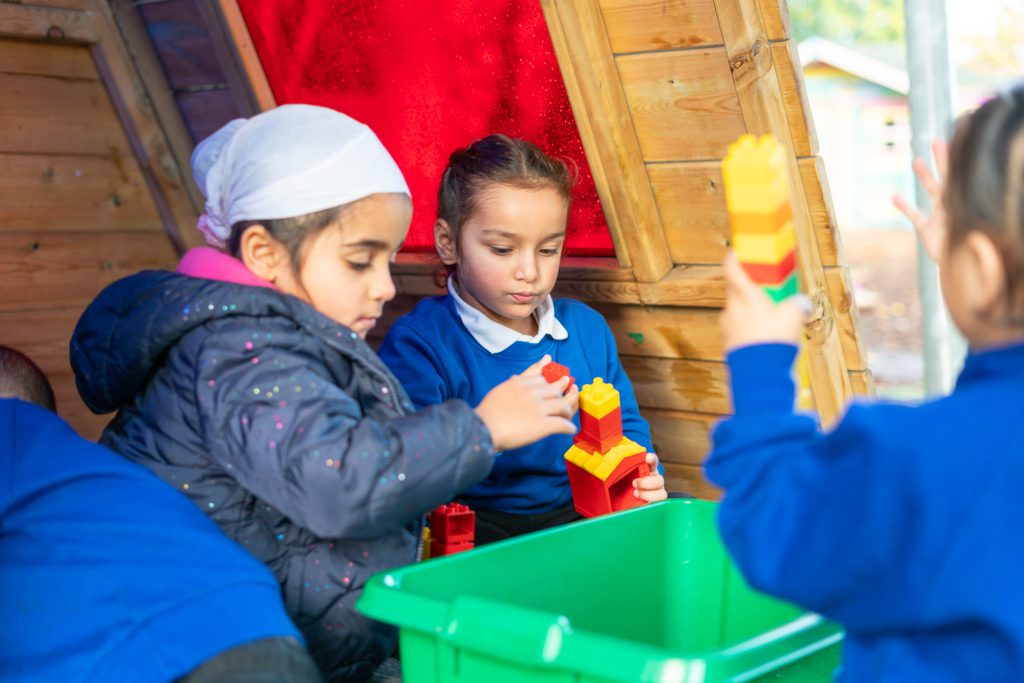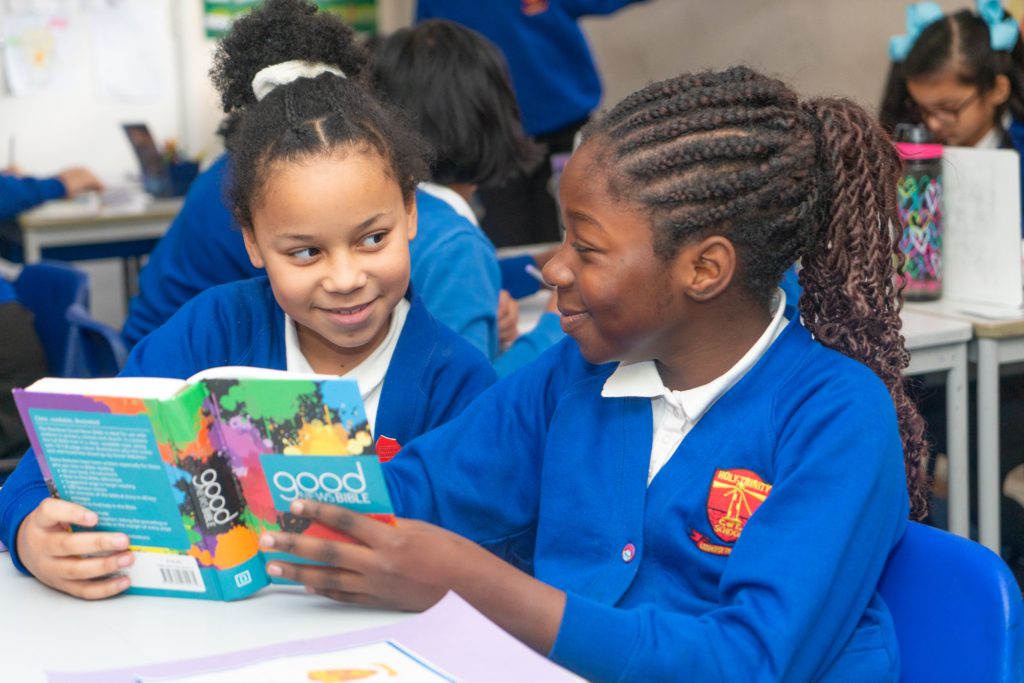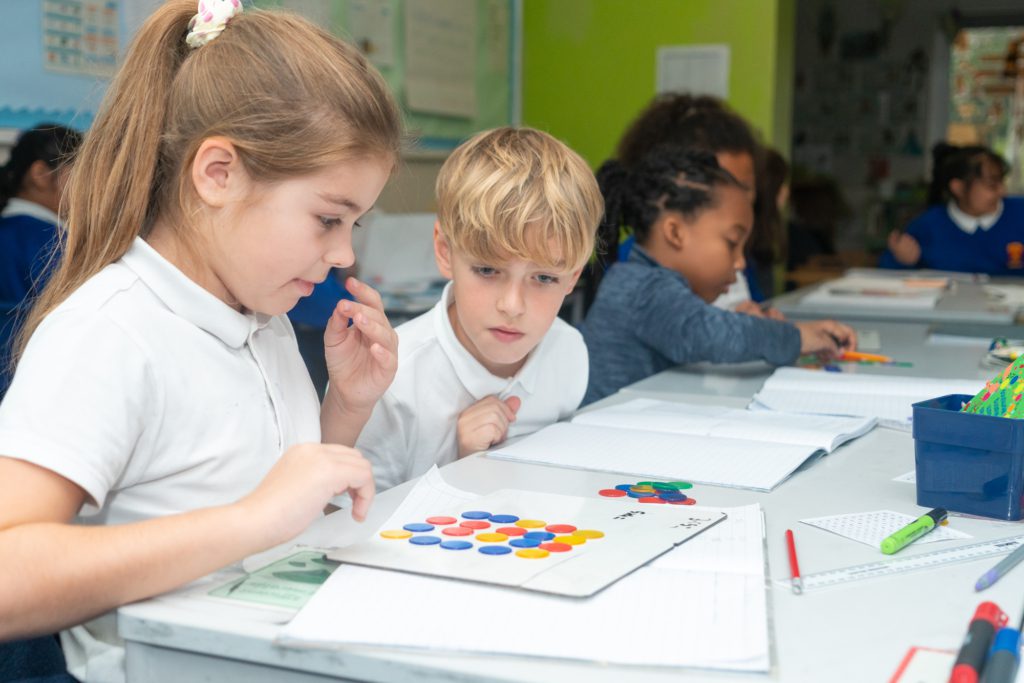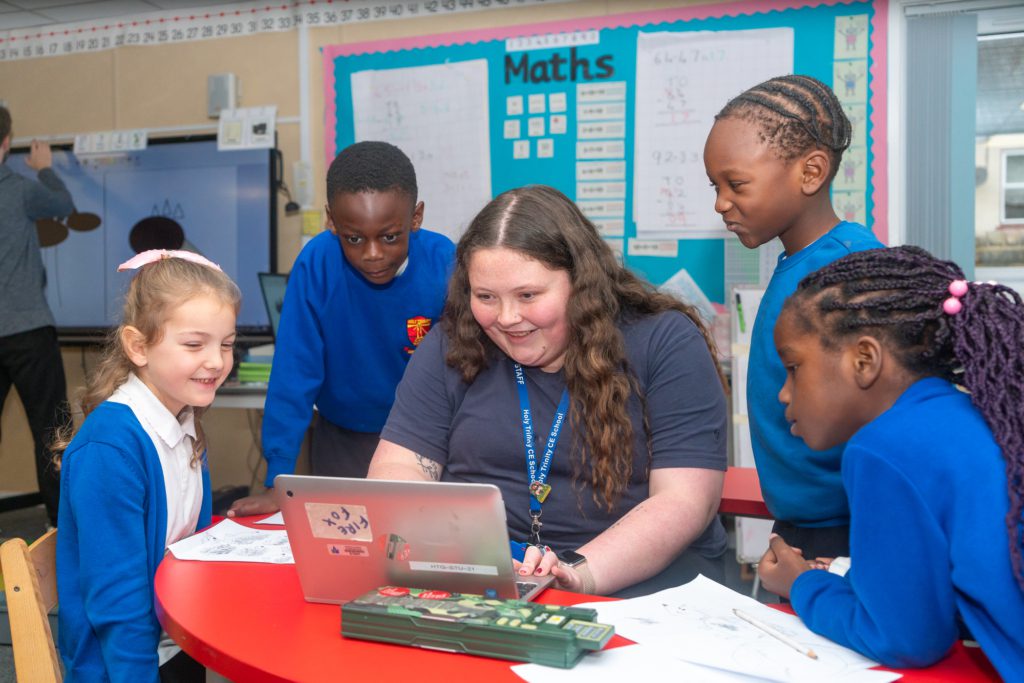Introduction
Holy Trinity offers a broad and balanced curriculum across all subject disciplines whereby knowledge and skills underpin our ambitious curriculum.
Power of Reading developed by The Centre for Literacy in Primary Education (CLPE) is highly regarded as an excellent research and evidence-based approach to teaching English. The Power of Reading project combines the use of outstanding books that is creative, and engaging and develops a love of reading and writing.
Throughout this year your child will be completing six themed topics. Learning across most curriculum areas is linked to an overarching theme where children experience purposeful and related learning opportunities. Science, Art, Design and Technology, History and Geography are taught through topic lessons and linked to the main title of the project. Maths, English, Physical Education, Religious Education, Computing, Personal Social Health Education and Spanish are taught discreetly.
Statement of Intent
Our curriculum is designed to develop confident, independent, and successful learners who have high aspirations for themselves and who know how to make a positive contribution to their school, and community and be a beacon of light and hope to all.
Holy Trinity C of E Primary School’s curriculum intentionally reflects the Christian Values of Love, Honesty and Respect and provides ample opportunity for children to learn the knowledge and skills required to achieve their God-given potential.
Through a combination of culturally rich and diverse texts endorsed and resourced from the Centre for Literacy in Primary Education (CLPE), White Rose Mathematics and Cornerstones Curriculum, our provision reflects the diverse cultures, religions, and social backgrounds from which our pupils originate. The curriculum is tailored such that children frequently see representations of themselves across a variety of texts and subject areas, as this gives children an insight into history and background; provides a mirror to identity and allows for connections to be built. In short, the curriculum is relevant, engaging and memorable. It will create lifelong learners.

Statement of Implementation


Our curriculum design is underpinned by Barak Rosenshine’s Principles of Instruction. This evidence-based approach ensures:
- The development of long-term memory and efficient recall through repetition and daily reviews.
- Lesson structures actively support pupils’ working memory and reduce extraneous cognitive load.
- Efficient retrieval practices are developed.
- Appropriate academic support is provided to all pupils through scaffolds.
- Independent practice is an integral part of every lesson.
We employ a mastery approach to the teaching of Mathematics and have embraced the National Centre for Excellence in the Teaching of Mathematics’ (NCETM’s) definition of mastery. Thus, pupils of all ages are provided with multiple and varied opportunities to acquire a deep, long-term, secure and adaptable understanding of mathematics, and efficient and accurate recall of mathematical facts. The drivers of this mastery approach are coherence, representation and structure, mathematical thinking and fluency.
We use Knowledge organisers as a summary of key facts and essential knowledge about a unit of work or a curriculum subject. They are normally one side of A4 paper and all key information is presented in an easily understood format, making them accessible to all pupils and easy to use at home.
The ability to communicate effectively is a vital life skill. At Holy Trinity we place emphasis on speaking in full sentences, using ambitious and subject-specific vocabulary, and adopting a good speaking posture, to succeed in school and in life.
Our Friday afternoon worship is dedicated to celebrating the achievements of our pupils. As well as recognising achievement and effort in curriculum study, we recognise pupils who embody our Christian values of love, honesty and respect, and qualities which promote British values.
At Holy Trinity, we define cultural capital as knowledge, skills and behaviours that enable social mobility. This is realised through all aspects of the curriculum. We expose pupils to the arts, and public speaking, provide musical instrument tuition, and offer a range of educational experiences and visits. We actively promote character-building qualities which lead to well-informed global citizens.
Statement of Impact
The desired outcomes of the curriculum ensure pupils are well-rounded individuals, embrace challenges with courage and are confident in embarking on the next stage of their learning journeys.
The impact of our curriculum is measured using the following markers:
- Percentage of pupils achieving ‘Good Level of Development’ at the end of their Reception Year.
- Results from the Phonics screening tests.
- End of Key Stage 1 and 2 Standardised Assessment Tests (SATs) results.
- Multiplication Tables Check scores.
We monitor the impact of the curriculum through triangulation of outcomes: pupil voice, test/data outcomes, planning, monitoring of books and displays, lesson learning walks, and discussions with teaching staff, pupils, and parents.
At the end of the academic year, teachers make summative judgements about how well pupils have mastered subject domain content and how proficient they have been in making inter and intra-curricular connections.
School leaders, curriculum and subject leads regularly review our provision to assess how well our school is meeting the requirements of this curriculum statement. These reviews have a direct impact on our professional development leading to both external courses and in-house training, utilising staff expertise. Part of this in-house training includes the identification of high-quality professional texts studied by staff over a series of weeks. This culminates in the application of concepts from the text with small groups of staff and pupils, allowing other staff to give constructive feedback and development points (Teacher Research Groups).

If you require any further information about our curriculum, please do not hesitate to contact the school office who will put you in contact with the relevant subject leader.

